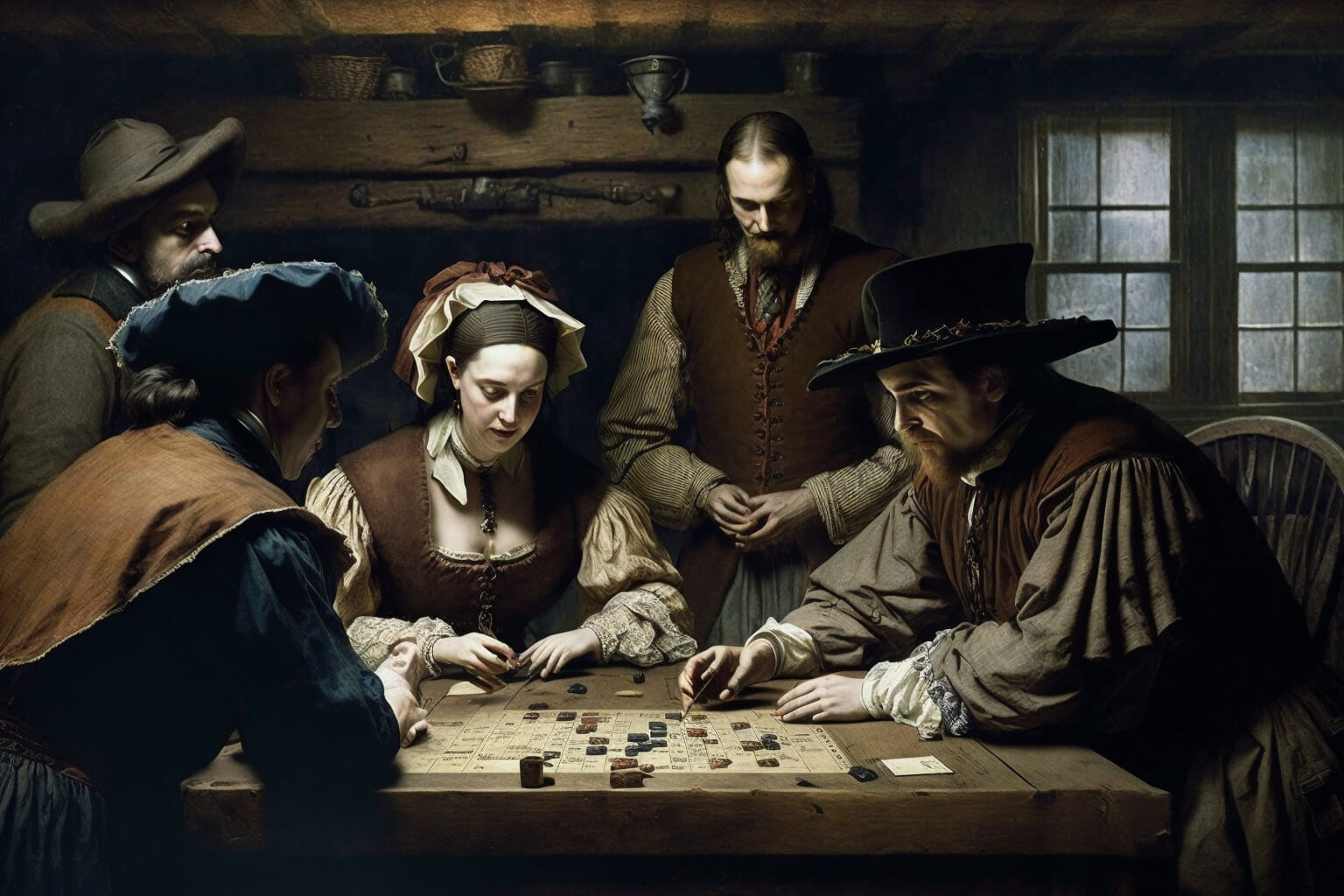The Puritans, all but freshly arrived at the Massachusetts Bay Colony, banned dice on March 22nd, 1631.
The General Court order issued said;
It is … ordered that all persons whatsoever that have cards, dice or tables in their houses, shall make away with them before the next court under pain of punishment.
Fancy clothes and living with Indians (as Native Americans were known at the time as) were also banned.
The goal, of course, was to ban gambling. Dice and cards make sense, but tables? No tables in your house?

The New England Historical Society also reports that missing Sunday services would speed you into the stocks and you were fined five shillings for celebrating Christmas.
Interesting, right? And hotly political! A war on Christmas? It came from this Christian community, and the Puritians instead wanted people to celebrate college graduation and Election Day.
That might seem strange today, but the tensions between religious belief and personal freedoms are still felt in the USA today.
Who were the Puritans
Puritans were English Protestants who attempted to rid the Church of England of Roman Catholic customs in the 16th and 17th centuries. They thought the Church of England had not been adequately reformed and needed to become more Protestant. Puritanism was influential in English history, particularly under the Protectorate.
Puritans were displeased with the English Reformation’s restricted scope and the Church of England’s tolerance of particular Roman Catholic Church practices. They held that the Bible was the only source of religious authority and that church services should be simple and unadorned.
Puritans believed in the value of education and literacy, and many were involved in establishing schools and universities. They were staunch champions of religious liberty, and many fled to England to avoid persecution.
Some of the most famous Puritans include John Bunyan, the author of “The Pilgrim’s Progress”; Roger Williams, the founder of Rhode Island, and John Winthrop, the first governor of Massachusetts Bay Colony.
The Puritans eventually lost influence in England, but their legacy continues to be felt in American culture. The United States was founded by Puritans, and many of the country’s early laws and institutions were based on Puritan principles.
🤖AI Disclosure. Software helped create images in this post. Geek Native's AI Content Policy.

